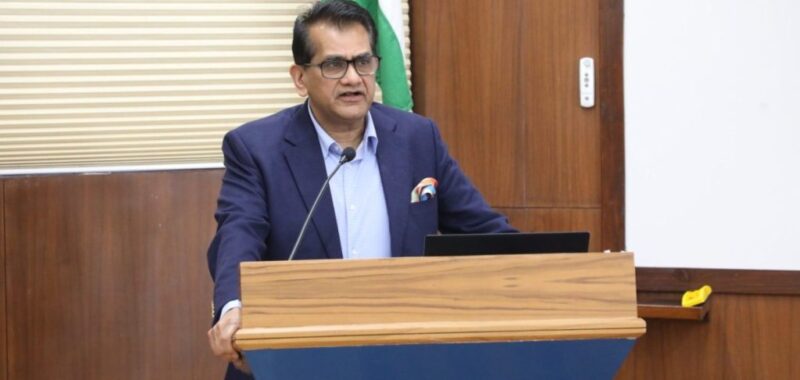IndiGo on Thursday announced it has appointed former Indian bureaucrat Amitabh Kant as a non-executive director to its board. The appointment is pending security clearance from India’s Ministry of Civil Aviation and approval from shareholders, the airline said in a stock exchange filing.
While this may seem like just another boardroom reshuffle, for those in the business of travel, Kant is no ordinary addition. His entry highlights IndiGo’s push to strengthen its long-term strategy, especially in areas where aviation meets tourism, trade, and infrastructure.
Who is Amitabh Kant?
A retired civil servant who spent over four decades shaping India’s economic and development policies, Kant most recently served as the country’s G20 Sherpa under Prime Minister Narendra Modi, helping India navigate global diplomacy during its G20 presidency in 2023.
The G20 event was considered by many to have helped push inbound tourism for India. When Delhi and the surrounding National Capital Region hosted the summit in September 2023, travel demand in the area jumped by 40%, according to data shared with Skift by travel technology firm RateGain.
But long before that, Kant was the mind behind two campaigns that redefined how the world saw India as a travel destination: “God’s Own Country” for Kerala Tourism, and the nationwide “Incredible India” campaign. These campaigns helped put India on the global tourism map at a time when the country wasn’t known for brand storytelling.
His LinkedIn post last month announcing his retirement from government services reflected on those early days in Kerala, saying the lessons he learned working on community-led tourism and infrastructure projects shaped his career.
“From the ‘God’s Own Country’ campaign to rejuvenating Calicut city by reviving Mananchaira Maidan, removing vast encroachments, expanding Calicut Airport and working closely with fishing community -these experiences shaped my career,” Kant wrote. “Later, in the Ministry of Tourism, we initiated the ‘Incredible India’ campaign — born from the belief that travel and tourism has the best multiplier impact on jobs and growth.”
IndiGo Looking Beyond Planes and Seats
IndiGo’s choice to bring Kant onto its board says a lot about where India’s largest airline sees itself headed. IndiGo is no longer content being just the largest airline in the country by market share. It has ambitions to become a global connector and tourism is central to that vision.
In his statement on the appointment, Kant said IndiGo has transformed air travel in India, “With its scale, efficiency, and international ambition, IndiGo will open up new markets for India, and transform our airports into global hubs of connectivity and commerce — driving tourism, trade, and investment, while linking people, markets, and opportunities across borders.”
The airline this week launched its first long-haul route between Mumbai and Manchester as well as Mumbai and Amsterdam. This is the airline’s first intercontinental flights using wide-body aircraft, operated with damp-leased Boeing 787-9 Dreamliners from Norse Atlantic Airways.
To meet the growing demand for luxury and premium travel in the country, IndiGo also introduced business class in its domestic and international routes.
The airlines clearly wants to help shape the infrastructure and policy landscape around travel. Kant’s background, which is at the intersection of tourism branding, government policy, and infrastructure, makes him an ideal fit for that kind of role.
Kant’s Fairfax Appointment and the Tourism Link
The former bureaucrat’s appointment to IndiGo’s board comes just days after Canadian investment firm Fairfax Financial Holdings hired him as a senior advisor. For context, Fairfax owns stakes in several companies tied to India’s travel ecosystem, including Thomas Cook (India) and SOTC Travel.
Fairfax said it values Kant’s “experience in spearheading large-scale development initiatives spanning digital infrastructure, urban renewal, industrial reforms, and tourism.” His insight will help guide Fairfax as it bets big on India’s economic transformation and growing middle class, segments that are crucial to both domestic and outbound tourism.
While the IndiGo and Fairfax roles are different, both tap into the same core skillset: knowing how to build tourism as an engine of economic growth. For IndiGo, it could mean working more closely with government and private stakeholders to shape airport development, regional connectivity, and travel ecosystems.

